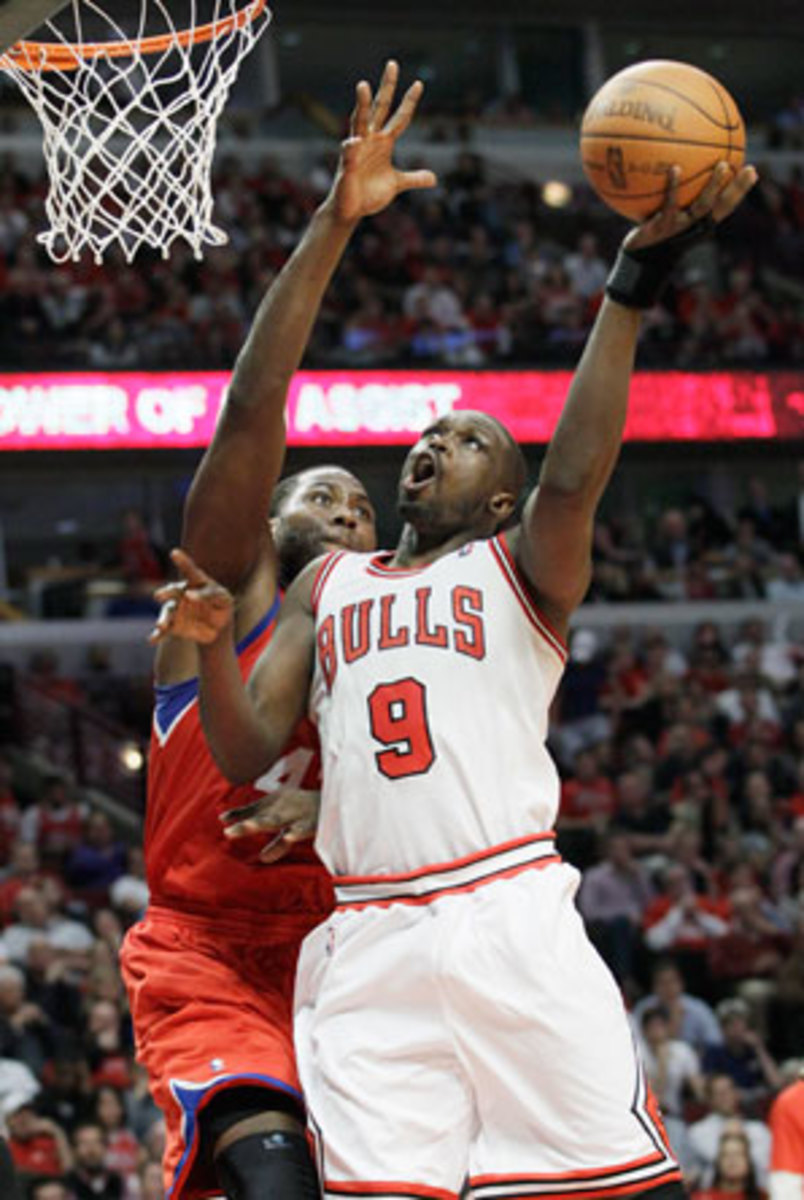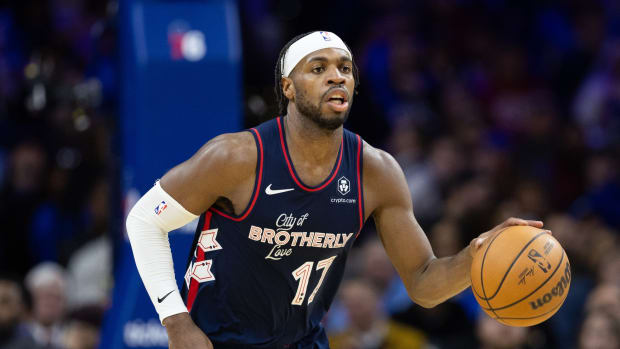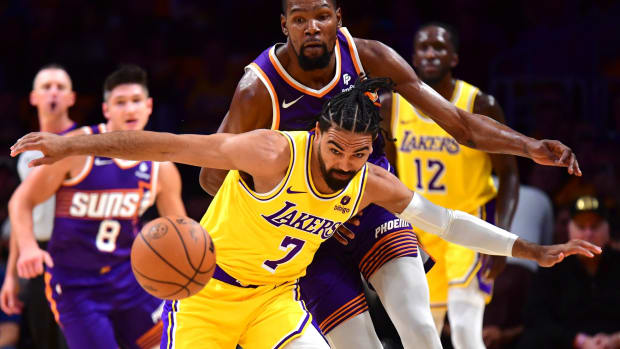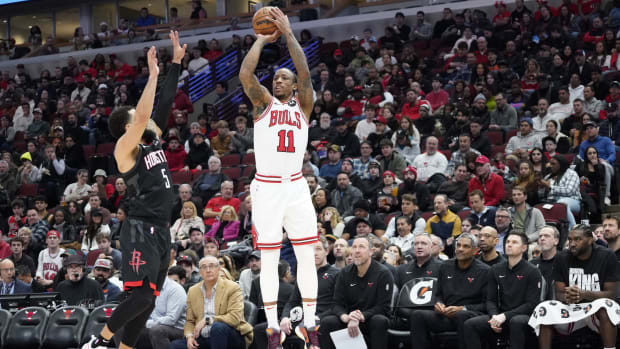
Injury-riddled Bulls hang on for another day against Sixers
The Chicago Bulls are grievously outmanned, short on offensive production and thin off the bench. They may not win another game in this series, but the sheer effort they showed in their 77-69 Game 5 victory over the Sixers was pretty inspiring. This was not what you would call a pretty basketball game, but there was something beautiful in the Bulls' resilience, fire and especially their elite defense. Even playing without Joakim Noah and Derrick Rose, it's easy to see how this team won 50 games during the regular season.
• About that defense. The simplest way to say this is that Chicago held the Sixers to 69 points on 32.1 percent shooting. But even those stats don't fully convey the schooling that the Bulls put on the Sixers, or the furious energy that they brought to the defensive end of the floor.
The Bulls put constant pressure on Philly's ball-handlers and were always in a position to help on dribble-penetration. When the Sixers did manage to penetrate the paint, the Bulls instantly collapsed on the ball, throttling any attempt to finish; Chicago's 11 blocked shots is a testament to its intensity around the rim. And somehow, despite its attention to providing help and choking off the interior, it still managed to sprint out to contest Philly's outside shots.
• The Bulls' ball-side pressure and their knack for impeding passing angles has a way of isolating opposing ball-handlers, of cutting them off from their teammates and disabling offensive flow. But the Sixers played into Chicago's hands. Rather than attempting to reverse the ball, to change sides of the floor and force the Bulls' defenders to move, the Sixers allowed themselves to be drawn into a one-on-one game. Their perimeter players -- Jrue Holiday, Evan Turner and Lou Williams in particular -- over-dribbled and attempted to ram the ball down the throat of the Bulls' strong-side pressure. The Sixers never established any offensive continuity; Holiday, Turner and Williams found themselves taking far too many desperate, well-guarded jumpers.
• The decisive run of this game (if a game this stilted and offensively tepid could be said to have any runs) occurred in the last 5:28 of the second quarter. At that point, the Bulls were clinging to a 25-24 lead. Both teams were struggling to score, but it seemed that the Sixers' advantage in the open court would be too much for Chicago to handle.
But the Bulls outscored the Sixers 10-2 the rest of the way -- and they did it with a fairly inauspicious-seeming group on the floor. Carlos Boozer and Luol Deng were the only starters to play during that stretch; reserves Ronnie Brewer, Taj Gibson and John Lucas III were the ones who really brought the energy. They disrupted the Sixers' offense at the point of attack, they flew into passing lanes and they attacked the ball at the rim. And they used this energy to finally generate some easy baskets.
• Speaking of Gibson, the guy was incredible. His four blocked shots were his most conspicuous contribution, but he was the heart of Chicago's defense in many respects. On one possession, he smothered Holiday after the super-athletic young point guard attempted to take him one-on-one. Just a few minutes later, he stood up the 7-foot Spencer Hawes in the post, muscling the big center off his spot and forcing him into an awkward shot.
Maybe most importantly, he provided his team with their final emotional swell when he returned to the court after an ugly ankle sprain (an injury that Bulls' fans hope is not as bad as it looked) and continued to play with his customary fire, even hitting a jumper and two free throws in the process. He was the spiritual center of the Bulls' inspired effort.
• None of this would have mattered, however, if the Bulls hadn't been able to score just a little. Without Rose and Noah, Boozer and Deng are the only Bulls who can be relied upon for even remotely consistent scoring. Boozer did his part with a 6-of-7 third quarter. Deng, though, was Chicago's real catalyst. Andre Iguodala -- with his incredible strength, range, quickness and length -- had held Deng to 10-of-30 shooting in games 2 through 3, so the Bulls designed sets to free Deng early in the game, giving him opportunities to score from off the ball, without having to take Iguodala one-on-one.
Chicago's first play of the game was a baseline screen that freed Deng for an open 15-footer. Minutes later, he dove to the hoop off a pin-down screen, gathered a quick pass from Boozer in the post and hit an open floater. In the second quarter, Deng hit a three when Iguodala shaded off of him to help on the ball. By this point, the long, languid forward was in his rhythm, and in the second half he came alive. His three deep, possession-saving fourth-quarter threes were true daggers. If the Bulls have any hope of advancing, this kind of performance from Deng (and Boozer) will need to become the rule.



































